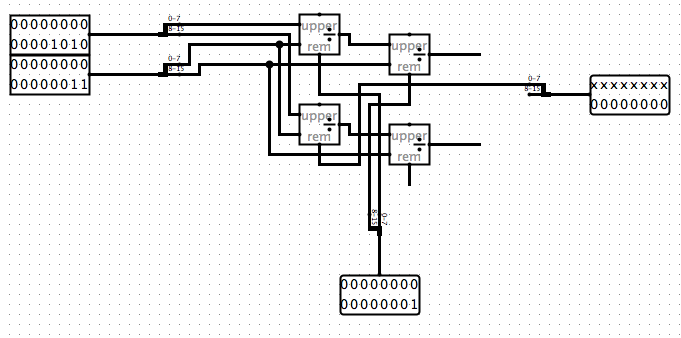I'm trying to make a 128-bit divider in Logisim using Logisim's built-in arithmetic library. How do I connect the dividers so that I can work with divisions of more than 32 bits?
What I have considered:
- Create the divider from logic gates (takes too long and would crash the simulation).
- Write my own divider library (I don't know Java or the Logisim source code that well and I'm still stuck with the original problem).
- Work with the dividers like I did the multipliers, but chain them in the reverse order (is that even plausible?).
- Write an application to generate the divider (the resulting circuit would crash the simulation).
I might be able to provide a screenshot of what I described for #3 with my multiplier if I need to clarify that point.
Edit: Here is what I've come up with so far based on the answer I got:

